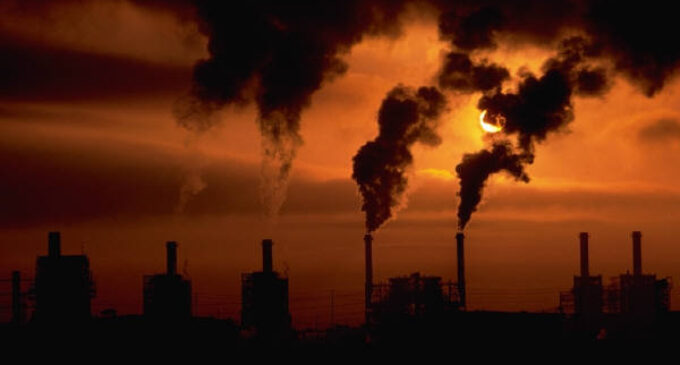OPEC ‘silently encouraging’ more carbon emission

The Organisation of Petroleum Exporting Countries (OPEC) is saliently encouraging burning of fossil fuels, consequently endorsing more carbon emissions for the future.
In its bulletin commentary released on Monday, OPEC said no matter how commendable renewable (green) energy is, it will only be a supplement to fossil fuels.
The oil cartel said it “is committed to doing all in its power to support the implementation of the Paris agreement, but it will always fly the flag for the continuing use of fossil fuels — particularly oil and gas — which are proven to be essential for the future welfare of the global economy and mankind in general”.
“It is therefore crucial that these longstanding conventional sources of petroleum, which have served the world well, continue to play centre stage and not be discriminated against, since there is no realistic alternative for meeting the world’s energy needs,” OPEC said.
“For the foreseeable future, renewables, however admirable, will only ever be supplementary, at best.”
EXCERPTS FROM OPEC COMMENTARY:
In recent years, much has been said about the importance of developing renewable energy, especially those sources that come with an ‘environmentally friendly’ stamp of approval. This need has become even more pressing in the wake of the landmark Paris Agreement on climate change, reached by world leaders in December last year.
However, while it is commendable to support ‘green’ sources of energy that have the potential to help preserve the planet for future generations, one has to be realistic.
The fact is, in the overall energy mix, there is only so much that renewables, such as solar, wind power and biofuels, can do to supply the burgeoning levels of efficient, reliable and affordable energy the world requires. That is certainly the case now and one that will see only gradual change in the foreseeable future. All forecasts point to fossil fuels continuing to satisfy the lion’s share of global energy demand in the years ahead.
The facts are quite profound: by 2040, OPEC predicts global economic growth doubling from today’s levels, as the number of people on the planet expands by 1.7 billion. Significantly for the oil sector, which is transportation driven, another 1.2bn people will be behind the wheel of an automobile. Commercial vehicles on the road will double, while air travel will soar. And, in the developing countries, massive potential exists for providing access to modern energy services to billions of people currently without adequate means of heating, cooking and lighting.
Translate all these facts into energy demand and unsurprisingly a 50 per cent increase from today’s levels is predicted by 2040. Of course, these are just forecasts, which are always subject to change, but even if just half of what is expected today becomes a reality, one constant will remain — fossil fuels will continue to be of paramount importance to the world’s economic wellbeing. Surely then, their development should be encouraged and nurtured — certainly not held back.
OPEC Secretary General, Abdalla Salem El-Badri, certainly agrees. “Fossil fuels will need to supply more than three-quarters of the energy mix by 2040,” he told delegates at an oil conference in Paris in April. This, he said, compared with a mere 22 per cent share for non-fossil fuel energy.
Such is his conviction that he does not foresee any scenario in which non-fossil fuels could come even close to overtaking fossil fuels in the decades ahead.
“Fossil fuels remain abundant and are necessary for our future, just as they have been an essential part of our past.” El-Badri pointed out in Paris.
Obviously, in keeping with the climate change agreement — which OPEC fully supports — all efforts should be made to produce ever-cleaner and ever-safer energy products. And in this regard, the oil industry continues to make huge steps, utilizing the latest technology to refine and adapt processes and rationalize production methods.
Again in Paris, El-Badri said he is a “firm believer” in the potential of technologies that reduce and ultimately eliminate harmful emissions associated with the burning of fossil fuels. He pointed to such proven initiatives as carbon capture and storage.
Of course, developing the technology and providing the extra production capacity needed to support this goal comes at a high monetary cost — money the international petroleum sector is struggling to find in these days of low oil prices. For such large-scale investments to be possible, crude prices need to return to a more reasonable range and more in keeping with the overall requirements of the oil sector.











There are no comments at the moment, do you want to add one?
Write a comment